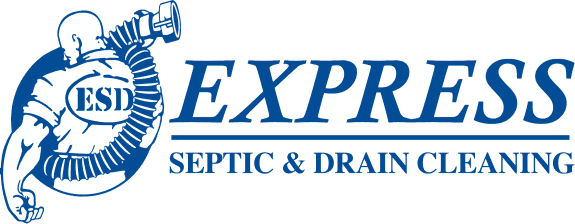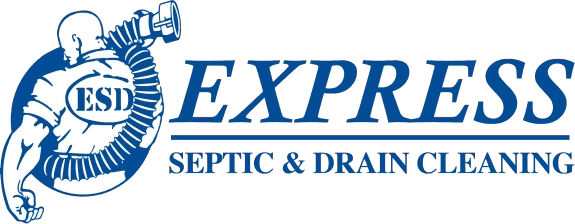Septic systems rely on bacteria inside the tank that works to break down toilet paper and solid waste. As the solids get broken down, they are transformed into sludge that settles at the very bottom of the tank. If the bacteria don’t fully break down the solids or can’t break them down quickly enough, it will result in the tank filling up far sooner and needing to be pumped more frequently.
If the tank isn’t pumped, the amount of solid waste will continue to grow until the point where it can start to flow out of the tank. This is a major issue that can result in the leach field becoming clogged and not working. The solids may also clog the outlet in the tank and prevent any wastewater from draining out, which will eventually result in sewage backing up inside the building. These issues show the importance of ensuring that the solids inside your septic tank are fully broken down, and here is everything you need to know to make sure this happens.
Avoiding Bleach and Harsh Chemicals
Bleach, drain cleaner and other harsh chemicals are extremely harmful and can result in your septic system not working properly. When these chemicals enter the septic tank, they will almost instantly kill off lots of the bacteria. The higher the concentration of chemicals inside the tank, the more bacteria will die.
This will drastically slow down the rate at which all of the solids in the tank are broken down into sludge. If all of the bacteria die, the solids obviously won’t be broken down at all and the tank will quickly start to fill up and potentially overflow.
All of the bacteria inside a septic tank are those that naturally occur in human waste. Every time you flush waste down the toilet, you’re adding additional bacteria into the system and thus ensuring that the rate at which the solids are broken down remains steady.
If you put lots of bleach or other chemicals down the drain, it will often take weeks before the chemicals are fully flushed out of the tank. As a result, any new bacteria that enter the tank will also die immediately. This can result in your septic tank not working properly for a long time until all of the chemicals are flushed out or broken down and the bacteria can start to grow and multiply again.
If the bacteria aren’t constantly breaking down all of the new solid waste entering the tank, the solids can build up to where they start to overflow out of the tank in just a few weeks or even sooner. This is why it is essential that you are extremely careful about what you put into your septic system and avoid the use of bleach and other strong chemicals as much as possible. A small amount of bleach occasionally typically won’t cause much of an issue but using lots of bleach and other chemical cleaning agents weekly most definitely will. You should also limit your use of antibacterial soaps as these will also kill off lots of the bacteria inside the septic system.
Keeping Out Harmful Solids
Septic systems are really only designed to accommodate human waste and toilet paper. Washing small amounts of leftover food down the drain usually isn’t a problem either, but you should try to avoid putting any other solid waste into your septic system. Things like paper towels, tissues, cotton pads, condoms, flushable wipes, cigarette butts, feminine hygiene products, and cat litter should always go in the trash and never down the toilet or drain.
These other solids will break down far slower, and many of them won’t break down at all. This will result in far more solids remaining inside the tank and cause it to fill up more quickly. All of these other solids are also far more likely to clog both the tank outlet and the pipes in the drain field.
Using Septic-Safe Materials
Another simple way to ensure that the solids inside of your septic tank are broken down properly is to always use septic-safe materials as much as possible. Septic-safe toilet paper is especially important in slowing the rate at which the solids build up inside the tank. These toilet papers are typically thinner and manufactured in a way that allows them to break down more quickly and into small pieces when flushed down the drain. This ensures that the toilet paper takes up less room and that the bacteria can break it down more quickly. Septic-safe toilet paper is also produced without using bleach or other chemicals that could harm the bacteria.
You can also find septic-safe dish and dishwasher soap, laundry detergent, and cleaning agents, all of which are free from any harmful chemicals. Septic-safe soaps also contain fewer surfactants. The surfactants in laundry detergent and other soaps work to break up dirt, grease, food particles, etc. This ensures that the particles can be removed and washed away more easily.
When your washing machine or dishwasher is running, the motion inside the machine allows the surfactants to easily mix with water. The issue is that the surfactants don’t mix when the water isn’t moving and will always settle on top of it. If you put too many surfactants into your septic system, they can form a thick layer of scum on top of the water. This scum layer can act as a barrier that captures solids and prevents them from settling into the bottom of the tank. As a result, some solids can remain near the top of the tank where they can potentially flow out into the leach field.
Boosting Your Septic System With Enzyme Treatments
There are two different types of septic treatments that can also help to ensure all of the solids inside the tank are fully broken down. If you accidentally kill off much of the bacteria inside the system, biological treatments are available that can help to replenish the tank. These treatments work by reintroducing lots of beneficial bacteria into the tank to increase the rate at which the solids are broken down and ensure they get broken down fully.
Biological treatments are also a good idea any time when your septic system has sat unused for more than a few months. If no waste enters your tank for a long time, the bacteria will eventually have nothing to feed on and start to die off.
There are also special septic enzyme treatments that can help to speed up the rate at which the solids are broken down. These enzymes affect the chemical composition of any organic waste in the tank. This process begins to break down the solids so that the bacteria can feed on them more easily and break them down quicker and more completely.
If you have any questions about your septic system, Express Septic & Drain Cleaning is here to help. We specialize in a full range of septic services for customers in Nampa, Boise, Caldwell, and the surrounding areas, including septic pumping, repairs, inspections, preventative maintenance, and enzyme treatments. We also have years of experience with septic tank and drain field installation as well as sewer line hydro jetting and soil decompaction for drain fields. For more information, give us a call today.



